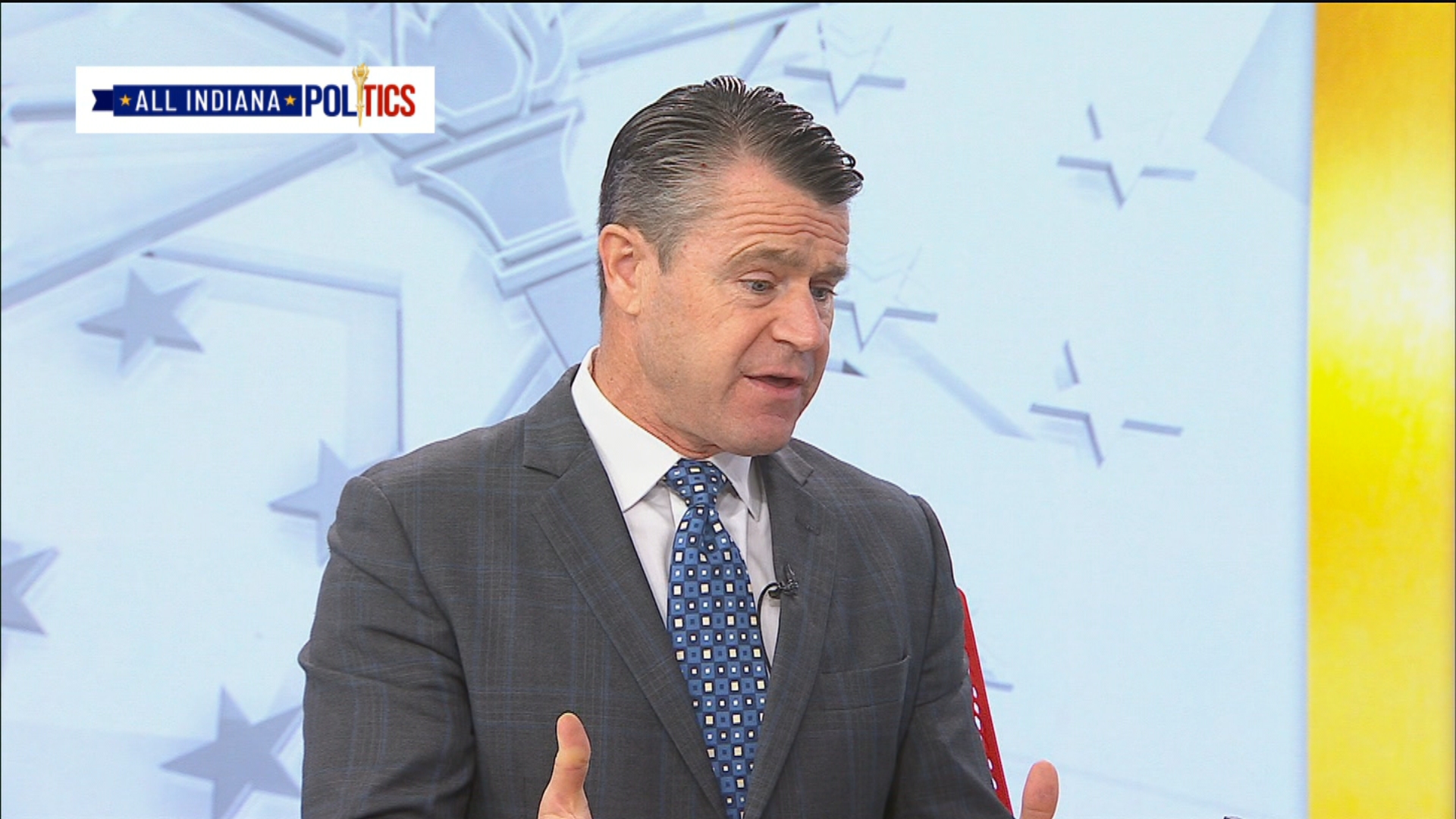US Sen. Young: Social issues likely to be left out of final Defense bill
INDIANAPOLIS (WISH) — Sen. Todd Young said hot-button Republican social priorities are worth including in the Defense bill debate but probably won’t make it to the president’s desk.
The two houses of Congress will need to work out the differences between their versions of the National Defense Authorization Act (NCAA) when members return to work in September. Usually a bipartisan affair, the annual bill became the latest flashpoint in the nation’s culture wars when House Republicans, including Indiana’s U.S. Rep. Jim Banks, added language banning gender-affirming treatment for active transgender service members and prohibiting the Department of Defense from reimbursing service members for traveling to obtain abortion services, among other things. The Democratic-controlled Senate’s version of the NDAA lacks those provisions.
In an interview with News 8 for Sunday’s “All INdiana Politics,” Young said he sees no problem with addressing social issues in a Defense bill. He said he views the Defense abortion reimbursement issue as a violation of the Hyde Amendment, which prohibits the use of federal funds to pay for abortions in almost all circumstances.
“It’s understandable that we’re going to have some very difficult conversations in the wake of the Dobbs decision which upset decades-old law from the Supreme Court,” he said. “So, it’s understandable and healthy that we’re having these debates.”
Because Democrats control the Senate and the White House, Young said the final version of the NDAA probably won’t include the social issues House Republicans pushed.
Young had several provisions of his own that made it into the Senate’s NDAA draft, including language to streamline the environmental review process for new microchip factories and to require a full audit of the Defense Department within four years. He also wrote a measure, modeled on the JFK Assassination Records Collection Act, to force the disclosure of records related to unidentified aerial phenomena. Young said the House’s recent unidentified anomalous phenomena (UAP) hearings are a good step in the direction of transparency.
“The idea here was to give rank-and-file Americans, rank-and-file Hoosiers, access to the same sorts of intelligence, as long as it doesn’t undermine national security, that the rest of us (in government) have,” he said. “So we can make better sense of a lot of these unidentified aerial phenomena and we also put to rest some of the conspiracy theories out there about what some of these unidentified phenomena are.”
“All INdiana Politics” airs at 9:30 a.m. Sunday on WISH-TV.






